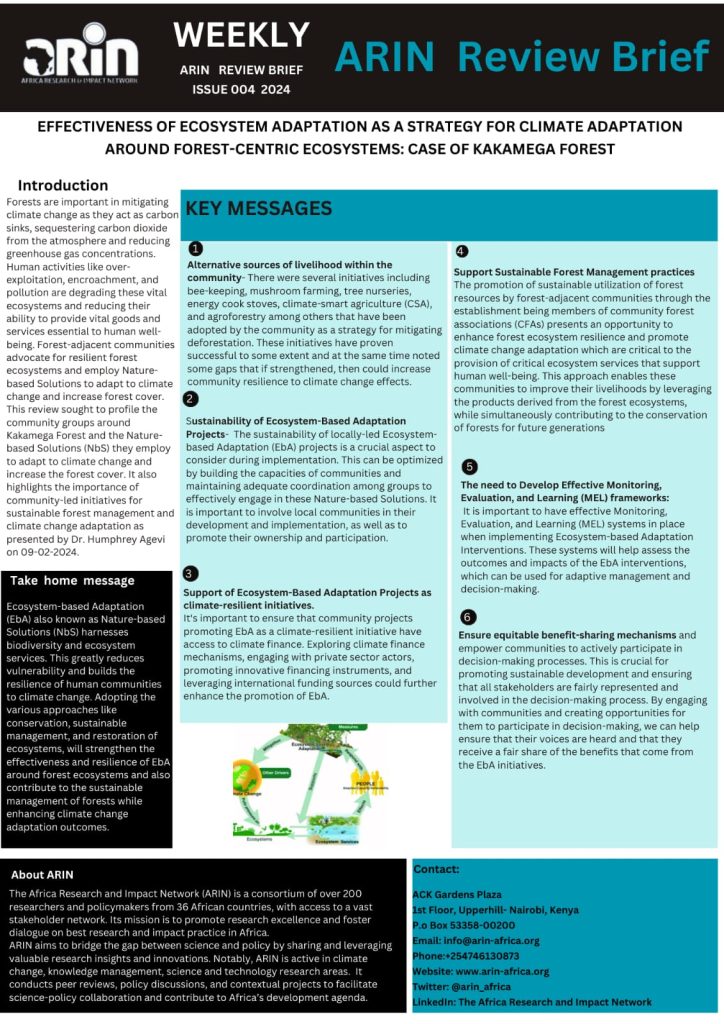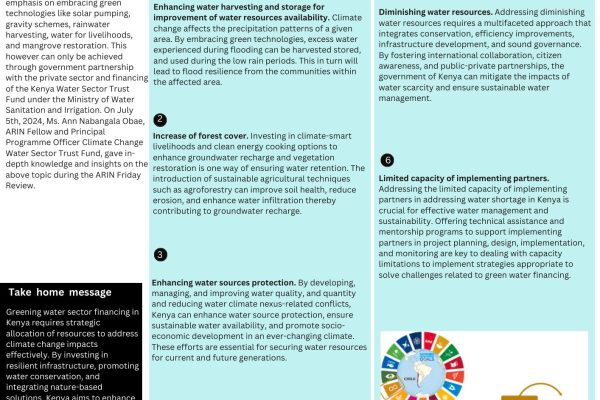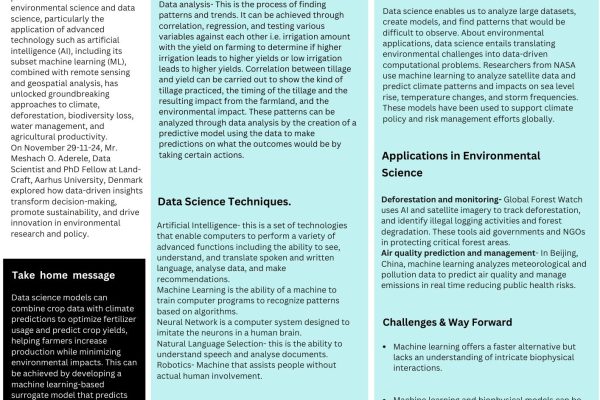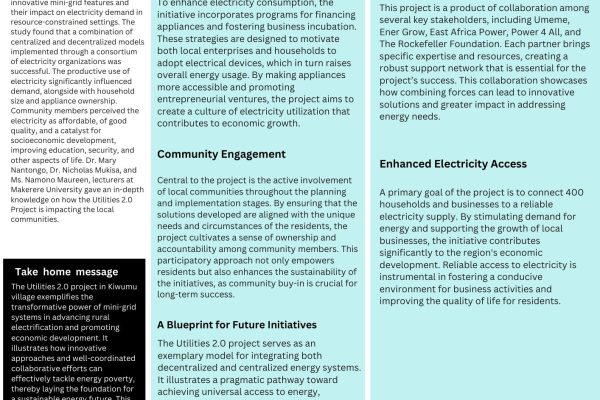
Introduction
Amidst the effects of temperature variations, altered precipitation patterns, extreme weather, droughts, floods, and sea level rise, climate change presents formidable challenges for Africa. Because of their limited infrastructure, reliance on rain-fed agriculture, and socioeconomic difficulties, African nations are especially vulnerable to climate change. In recent years, Sub-Saharan Africa’s food system has been under siege not only due to climate change but also due to the rise in locust populations, increased volatility in global prices, and COVID-19. On January 26th, 2024, Mr. Samuel Muoria, Research Associate at SEQART AFRICA, gave an in-depth analysis of the above topic during the weekly ARIN reviews.
Key messages.
Sharing pertinent and timely information is necessary. To do this, the science guiding the policy can be produced, and interaction with the policy community can guarantee that the policy responds to the evidence in order to comprehend the policy’s impact. Africa has to adopt a comprehensive and multimodal strategy that blends policy interventions with research in order to build resilience in the face of climate change. In order for policy goals to be met, research-based policy development and implementation are necessary.
Africa is the least responsible but worst hit continent. According to the CIPCC4 Assessment Report, Africa is one of the continent’s most susceptible to climate change and variability because of its low adaptive capacity as well as partial exposure to the climate. We are particularly vulnerable because we are unable to handle droughts or floods. The Metrological Report projects that 700 million people will be forced to relocate by 2030 as a result of water stress. This will have a negative impact on livelihoods and worsen issues related to water scarcity, with North Africa suffering the most.
To cope with the effects of climate change, African nations are putting different adaptation strategies into practice. These tactics include the creation of infrastructure that is climate resilient, early warning systems for extreme weather events, water management, and sustainable agricultural practices. Increasingly, integrated strategies that tackle development objectives and climate change are being adopted.
Climate research approach and policy decision making. In order to give the policy-making process objective justification for debating what to do or whether to do something in particular, research is crucial in establishing scientific causes and making fact-informed predictions about effectiveness. These goals are both attained through the use of rigorous, precise, and valid methods of inquiry.
Participatory action research. The most impacted parties, including farmers, village elders, meteorologists, agronomists, academicians, local leaders, public servants, and civil society organizations, are collaborating with researchers to share knowledge in order to adapt to climate change. In order to comprehend local climate patterns, vulnerabilities, and potential effects, funds should be allocated to climate research focused on African regions, creating and improving early warning systems for meteorological and climate monitoring in order to gather precise and timely data.
Conclusion
African countries can improve their climate change resilience, safeguard vulnerable populations, and advance sustainable development by incorporating these strategies. For these initiatives to be successful, cooperation between the government, academic institutions, non-governmental organizations, and local communities is essential.




